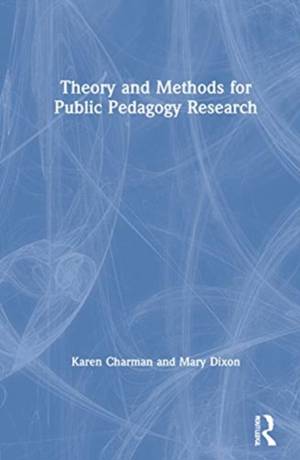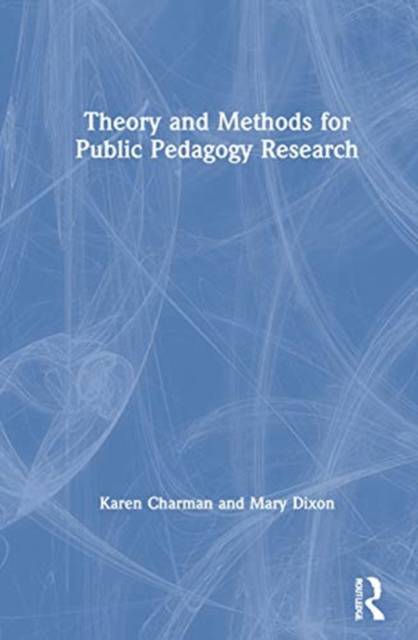
- Afhalen na 1 uur in een winkel met voorraad
- Gratis thuislevering in België vanaf € 30
- Ruim aanbod met 7 miljoen producten
- Afhalen na 1 uur in een winkel met voorraad
- Gratis thuislevering in België vanaf € 30
- Ruim aanbod met 7 miljoen producten
Omschrijving
Theory and Methods for Public Pedagogy Research introduces promising new methods of public pedagogy research centered around transforming rather than explaining knowledge. The new methods are premised on a new theorisation of public pedagogy which recognises the educative agent. The agency of the public to speak, to be heard, to know is manifest as the educative agent speaks their knowledge and the researcher must be attentive to that speaking.
This work extends the well-established intellectual projects in the field to introduce four new methods for public pedagogy research: organisation, performance, curation and researcher. A key focus of this work is attending to how the circulation of knowledge in non-formal settings can be recognised. It examines the under-published area of pedagogy and research in public spaces and engages post-qualitative approaches to inquiry to open up the field. Moreover, it explores the possibility of performances, art exhibitions and museums as public spaces of knowledge generation and pedagogy. It also shows how research can be applied in practice in public pedagogy to discover best practices for working in these spaces. Finally, it confronts and critiques the dilemmas of public pedagogy research and the limits of research methods which have previously been deployed in this field.
This book will be of interest to researchers and students in the field of public education and teaching in a variety of social science and arts disciplines, and education.
Specificaties
Betrokkenen
- Auteur(s):
- Uitgeverij:
Inhoud
- Aantal bladzijden:
- 150
- Taal:
- Engels
Eigenschappen
- Productcode (EAN):
- 9780367820220
- Verschijningsdatum:
- 9/03/2021
- Uitvoering:
- Hardcover
- Formaat:
- Genaaid
- Afmetingen:
- 156 mm x 233 mm
- Gewicht:
- 459 g

Alleen bij Standaard Boekhandel
Beoordelingen
We publiceren alleen reviews die voldoen aan de voorwaarden voor reviews. Bekijk onze voorwaarden voor reviews.











